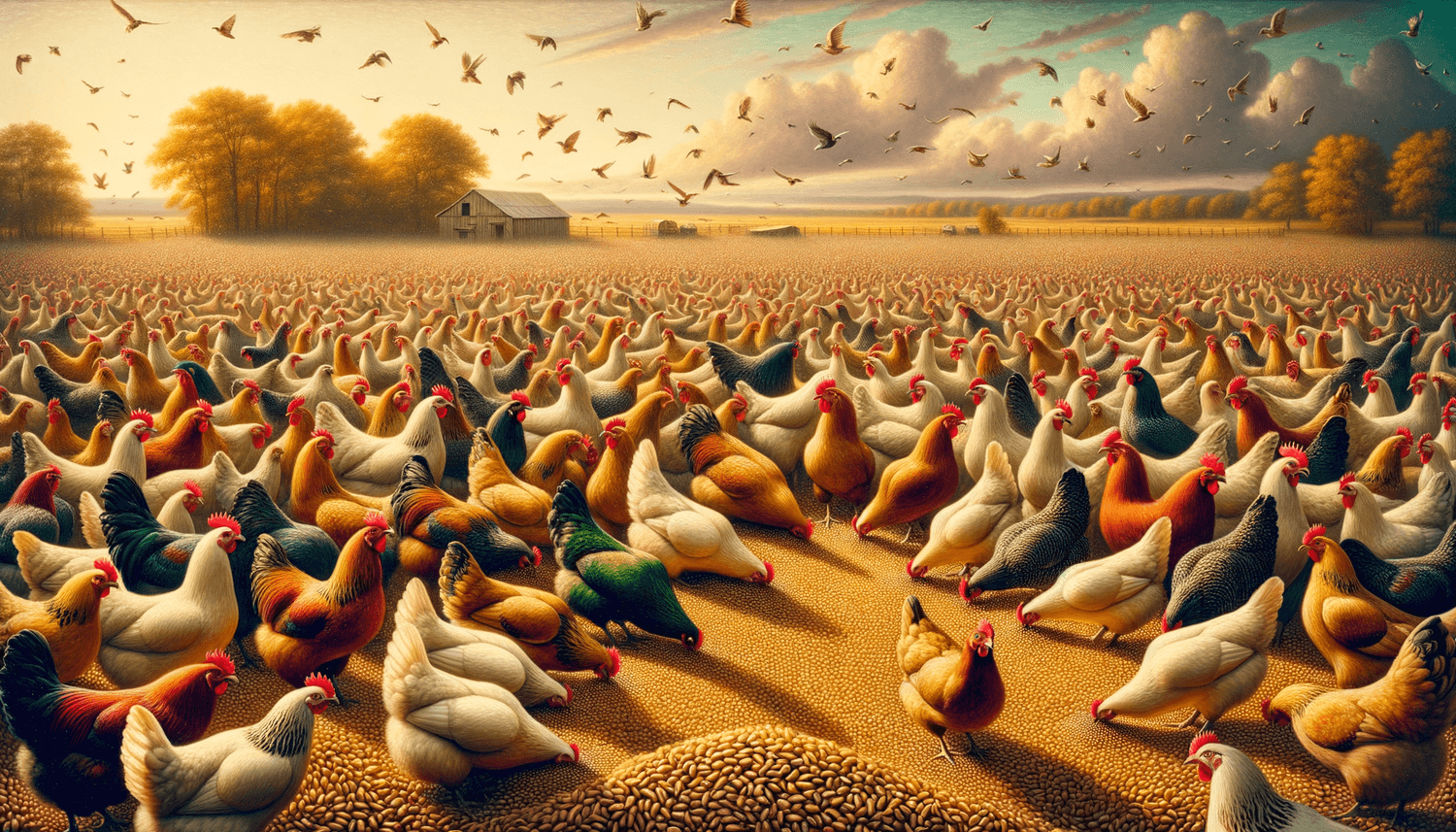Welcome fellow backyard chicken enthusiasts! Today, we’re on a mission to satisfy every chicken owner’s curiosity: Can our feathery friends eat pear seeds or not? In this fun-filled blog post, we’ll crack the mystery behind the nutritional value of pear seeds, uncover the potential benefits and risks, and discuss how crucial a balanced diet is for the health of our cluckers. Lastly, we’ll provide some helpful tips on how to prepare these delightful treats just the way your chickens would love them. So come along, and let’s get pecking into this scrumptious topic!
Can chickens eat pear seeds?
No, chickens should not eat pear seeds as they contain amygdalin, a substance that releases cyanide when digested. While small amounts of cyanide are unlikely to cause severe issues, it is best to keep your chickens safe by avoiding pear seeds in their diet. It’s always better to err on the side of caution and offer alternative healthy treats for your feathery friends.
A balanced diet for cluckin’ good health
Just like us humans, chickens need a balanced diet to stay healthy and happy. Ensuring they have the right nutrients is essential for egg laying, growth, and overall well-being. Their diet should primarily consist of a high-quality chicken feed, making up about 80-90% of their daily intake. This will ensure that they’re getting all the essential vitamins, minerals, and proteins to lead a healthy life.
Now, you might be wondering what should account for the remaining 10-20% of their diet. Well, this is where some delicious and nutritious treats come in! You can offer your chickens a variety of fruits and vegetables to supplement their chicken feed. These tasty treats not only enrich their diet, but also provide some fun for your feathered friends as they peck and scratch to enjoy their snacks. Just remember to keep treats in moderation to maintain a well-balanced diet for your beloved hens and roosters.
Nutritional value of pear seeds for chickens.
As previously mentioned, chickens should not eat pear seeds due to the presence of amygdalin, a compound that can release cyanide when digested. This potentially harmful substance poses a risk to your chickens’ health, making it important to avoid feeding pear seeds to them. Although some may argue that there might be some nutritional content in pear seeds, consuming them is simply not worth the risk.
However, it’s worth noting that pears themselves are a suitable treat for chickens, offering their own set of nutritional benefits. Pears are rich in vitamins, such as vitamin C and K, and minerals like potassium and calcium. Moreover, they provide moderate hydration due to their high water content. While pear seeds should be avoided, you can safely offer your chickens pear flesh as an occasional treat to contribute to their overall health and well-being.
Nutrition table of pear seeds for chickens.
| Information | Description |
|---|---|
| Nutritional Value | Not applicable as chickens should not eat pear seeds. |
| Suggested Serving Size | Do not serve pear seeds to chickens. |
| Safe Feeding Practices | Avoid feeding pear seeds to chickens due to potential cyanide release. |
| Preparation | No preparation necessary as pear seeds are not suitable for chickens. |
| Potential Risks | Amygdalin in pear seeds can release cyanide when digested, posing possible health risks to chickens. |
| Hydration | Not applicable as chickens should not consume pear seeds. |
| Digestion | Feeding pear seeds to chickens can lead to digestion difficulties due to the presence of amygdalin. |
| Seasonal Availability | Irrelevant as pear seeds are not safe for chickens to consume. |
| Other Benefits | No benefits as chickens should not eat pear seeds. |
Feeding your chickens the right treats
While pear seeds are out of the question, there’s a delectable variety of fruits, vegetables, and other treats that your chickens will undoubtedly love. It’s essential to know which foods are safe and promote a healthy diet for your backyard flock. Some popular chicken-friendly treats include leafy greens, melons, berries, apples (without seeds), and sunflower seeds.
Treats to avoid
Knowing which treats to not offer your chickens is just as important as providing the good stuff. Some foods can be toxic and cause digestion issues or other health problems. Besides pear seeds, avoid feeding your chickens avocado skin/pits, raw or undercooked beans, green parts of tomatoes or potatoes, chocolate, and any food high in salt or processed sugars.
Proper treat preparation
To ensure your chickens enjoy these treats safely, proper preparation is necessary. Always wash the fruits and veggies before chopping or cutting them into smaller pieces. Removing seeds, pits, or any harmful parts must be the utmost priority. For example, when offering apples, remove the core and seeds, which can be harmful to chickens. In addition to these practices, avoid overfeeding treats; a healthy balance of treats and chicken feed is essential for their well-being.
Treats can be enriching
Not only do treats provide nutritional benefits, but they can also act as a form of enrichment for your chickens. Boredom can lead to problems such as pecking or bullying within the flock. Providing treats can stimulate your chickens’ natural foraging behaviors, keeping them occupied, content, and happy.
By being mindful of your chicken’s diet, avoiding potentially harmful treats like pear seeds, and providing safe and nutritious options, you’ll support a healthy environment for your beloved backyard flock. Happy chickens make for happy owners!

















